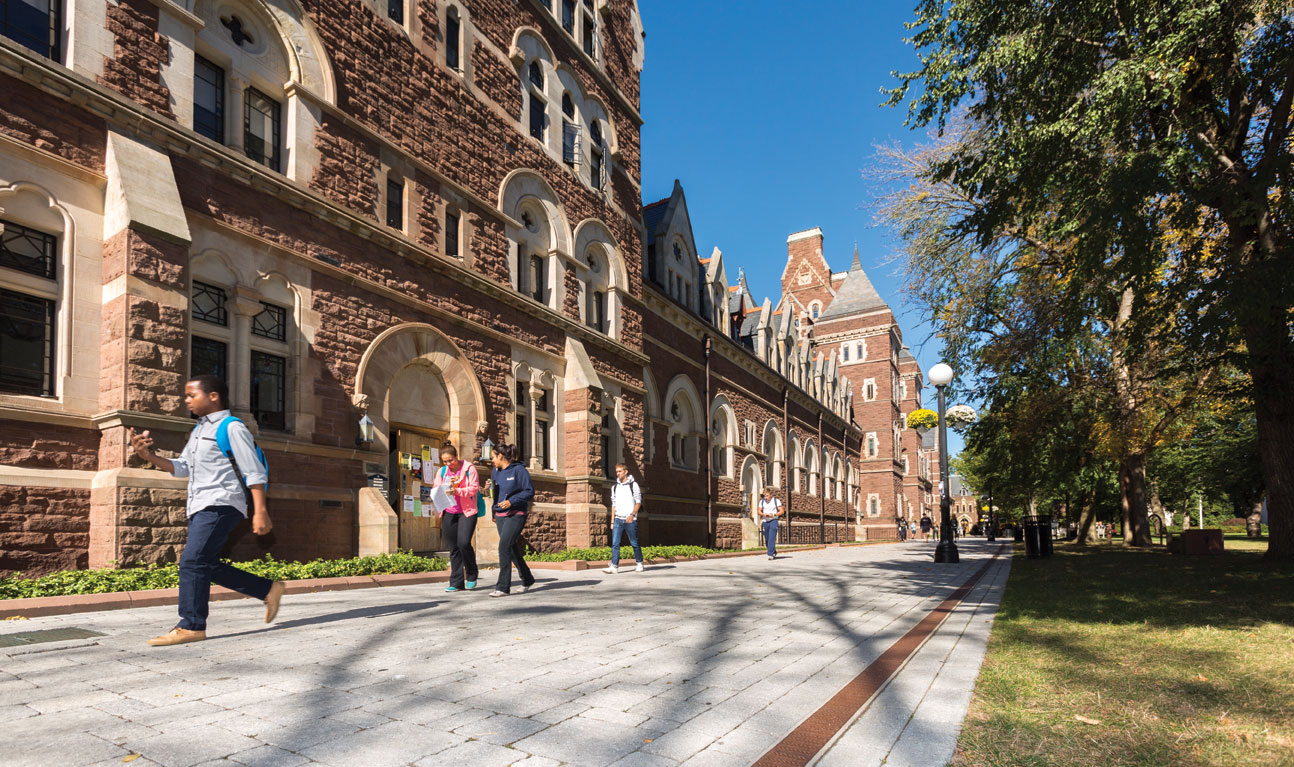
Photo by John Marinelli
Trinity announced in January that The Andrew W. Mellon Foundation has awarded the college $800,000 over three years to support four interrelated initiatives that will advance inclusive excellence in the arts, humanities, and digital scholarship.
“In concert with our new strategic plan for Trinity’s future, the initiatives being funded build on the traditional strengths of a Trinity liberal arts education and further our vision of Trinity as a first-choice destination for students, faculty, and staff,” said Trinity President Joanne Berger-Sweeney.
The grant will support the humanities and adjacent disciplines in four key ways:
PUBLIC HUMANITIES COLLABORATIVE—Trinity will develop a Public Humanities Collaborative, creating new opportunities for students to pursue deep research experiences in the arts and humanities, partnering with faculty mentors and humanities or cultural organizations. Each summer, a cohort of 16 undergraduate students will undertake collaborative or independent research projects or internship placements, producing academic works (such as journal articles) and public works (such as performances). Preference will be given to students with demonstrated financial need, who often are unable to take advantage of summer experiences.
UNDERGRADUATE RESEARCH SYMPOSIUM IN THE ARTS AND HUMANITIES—Trinity, in collaboration with Connecticut College and Wesleyan University, will hold an annual one-day Undergraduate Research Symposium in the Arts and Humanities, to be hosted by each institution on a rotating basis. The symposium will provide a venue for students to engage with the broader humanities scholarly community, to present their work, and to explore career options consistent with the study of liberal arts in general and the arts and humanities in particular.
INCLUSIVE PEDAGOGY AND ADVISING PROGRAM—The grant will fund the exploration by Trinity faculty of inclusive pedagogy and advising—methods of teaching and advising that take into consideration the varied backgrounds, learning styles, and abilities of all students. The program will support faculty attendance at national advising conferences, the convening of faculty working groups on campus, travel to peer institutions, the hosting of guest scholars, and development of a “digital tool kit” for faculty based on recent scholarship on advising.
DIGITAL SCHOLARSHIP PROGRAM—Undergirding the above initiatives is the development of skills and expertise of Trinity faculty and students in the use of digital tools and content to advance teaching, learning, and research. Funding will expand Trinity’s Digital Scholarship Lab, will help the college bring leading digital scholars to campus, and will provide development grants to faculty to support research and course development.
